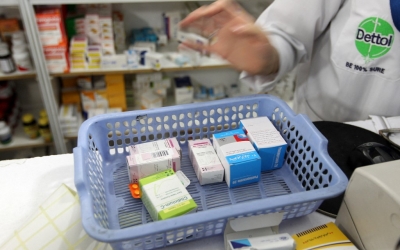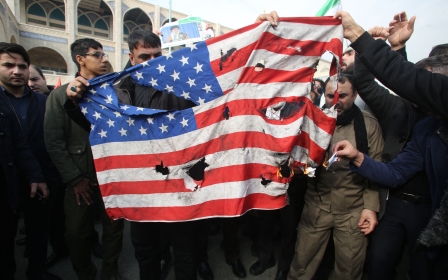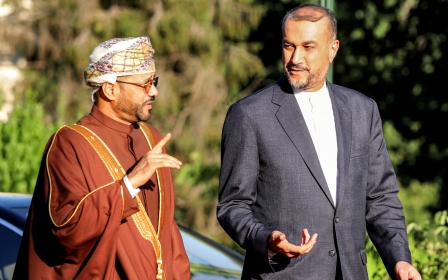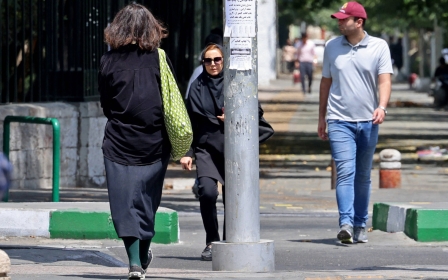Iranian press review: Tehran blames Russia for the shrinking of the Caspian Sea

Russia blamed for the shrinking of the Caspian Sea
Iranian officials are blaming Russia for a rapid drop in the level of the Caspian Sea.
Water levels in the world's largest lake have fallen to their lowest levels in around 100 years, according to local media.
The Caspian Sea is shared between Iran, Russia, Azerbaijan, Kazakhstan and Turkmenistan.
But the Iranian government’s space agency says that Russia has caused water levels to fall by increasing the number of its dams on the Volga river, which has reduced the flow into the Caspian Sea.
New MEE newsletter: Jerusalem Dispatch
Sign up to get the latest insights and analysis on Israel-Palestine, alongside Turkey Unpacked and other MEE newsletters
The Volga accounts for 86 percent of the water entering the Caspian Sea and the diminished flow has caused it to dry up, particularly over the last two years.
“The Caspian Sea's water level has been steadily decreasing, and alarming statistics indicate a reduction of approximately one metre over the last four-five years," an Iranian official told local media. "On average, the sea is receding by 20 centimetres annually."
Water levels have been especially low in southern areas of the Caspian Sea, including Miankaleh and Anzali.
Concerns have been raised that significantly depleted water levels could change the coastline of Iran and campaigners are urging for the protection of wetlands.
Pharmaceutical companies struggle to stay open
One of Iran’s most well-known pharmaceutical companies is closing its doors this week and ceasing operations due to the ongoing economic crisis in the country.
The Alhavi Pharmaceutical Company, which was established in 1968, has been struggling in recent years due to strict pricing regulations imposed by the government.
On Wednesday, the Shargh Daily reported that the company, which is renowned for its paediatric medicines, has stopped production and fired over 500 employees.
The news comes just two weeks after a statement was published by the syndicate of Iranian pharmaceutical firms' board of directors warning President Ebrahim Raisi that his administration's policies were having a negative impact on public health and worsening the country's medicine shortages.
According to reports, the government’s decision to embargo six of Alhavi Pharmaceutical Company's products followed a disagreement over pricing.
The Iranian medicine crisis began in 2021 and worsened after Raisi’s administration stopped pharmaceutical companies from increasing their product prices, despite the rising cost of the imports needed for medicine production.
Experts who spoke to Shargh Daily anticipate that the closure of the company will worsen the medicine crisis in the country, particularly in light of growing corruption and nepotism in the industry.
South Korea charges Iran for holding its assets
South Korea has charged Iran for holding around $7bn in frozen assets that Tehran cannot access due to US sanctions, according to media reports.
The Iran-based business paper Donya-e Eqtessad reported that when asked about the $1 billion difference between the amount Seoul intended to transfer to Tehran via Qatar and the original frozen assets, Iran's central bank director attributed it in part to the devaluation of the South Korean currency against the US dollar since 2021.
However, a source inside the government told the paper that South Korea had "charged Iran for the expenses of holding its debt to Iran" over the past decade.
The report also added that Iran's funds were also reduced because of payments made to international organisations and the purchase of medicines from South Korea.
Iran’s central bank chief has since said that all of the frozen funds that were unblocked would be used for “non-sanctioned goods".
The news follows the agreement last week to release five Americans held in Iranian prisons in exchange for releasing billions of dollars from South Korean banks.
*Iranian press review is a digest of news reports not independently verified as accurate by Middle East Eye.
Middle East Eye delivers independent and unrivalled coverage and analysis of the Middle East, North Africa and beyond. To learn more about republishing this content and the associated fees, please fill out this form. More about MEE can be found here.





